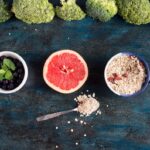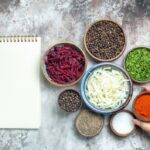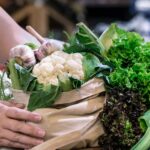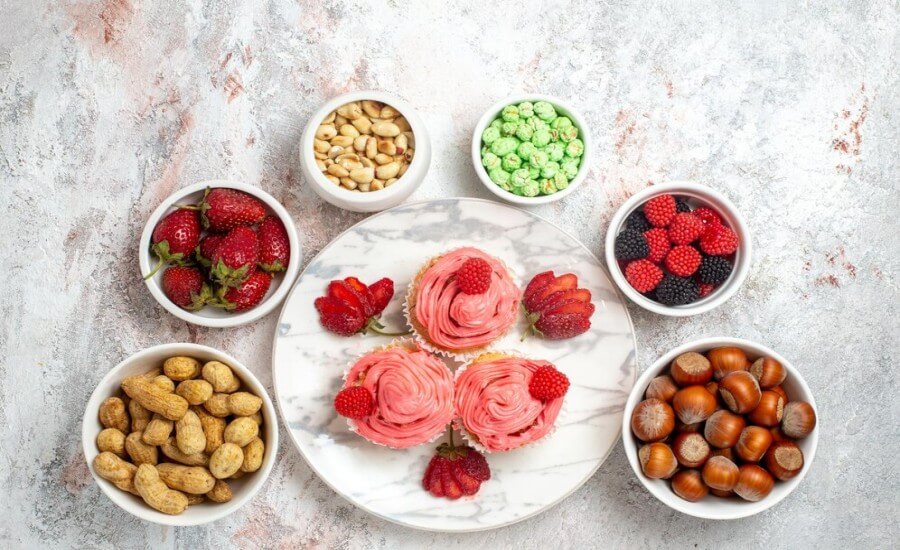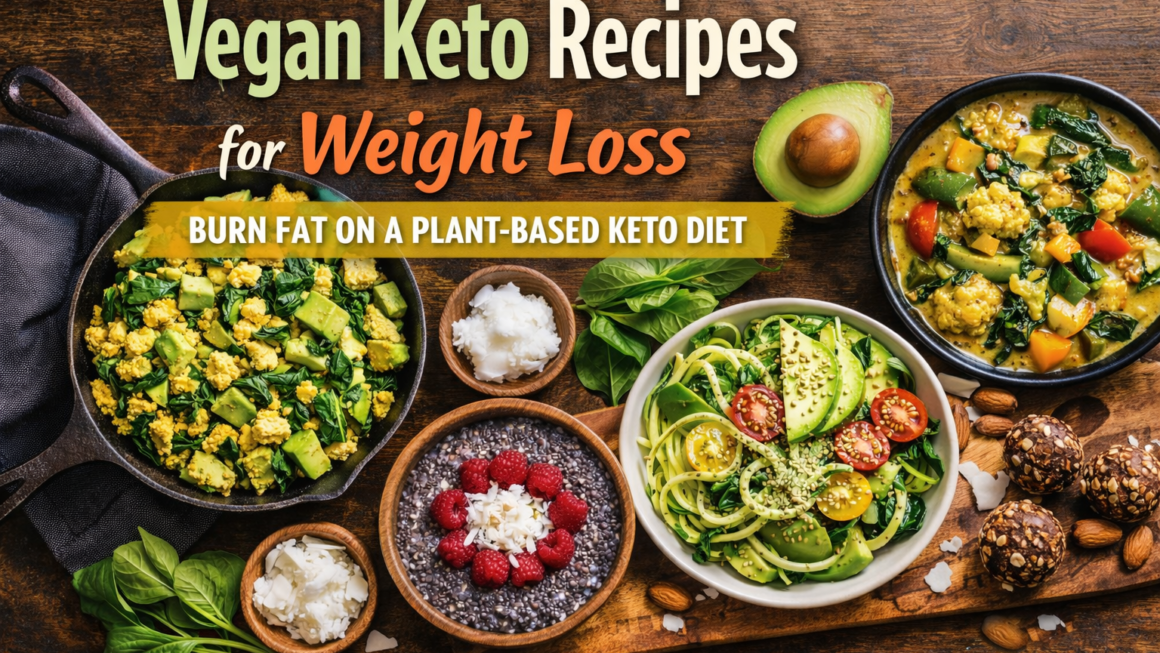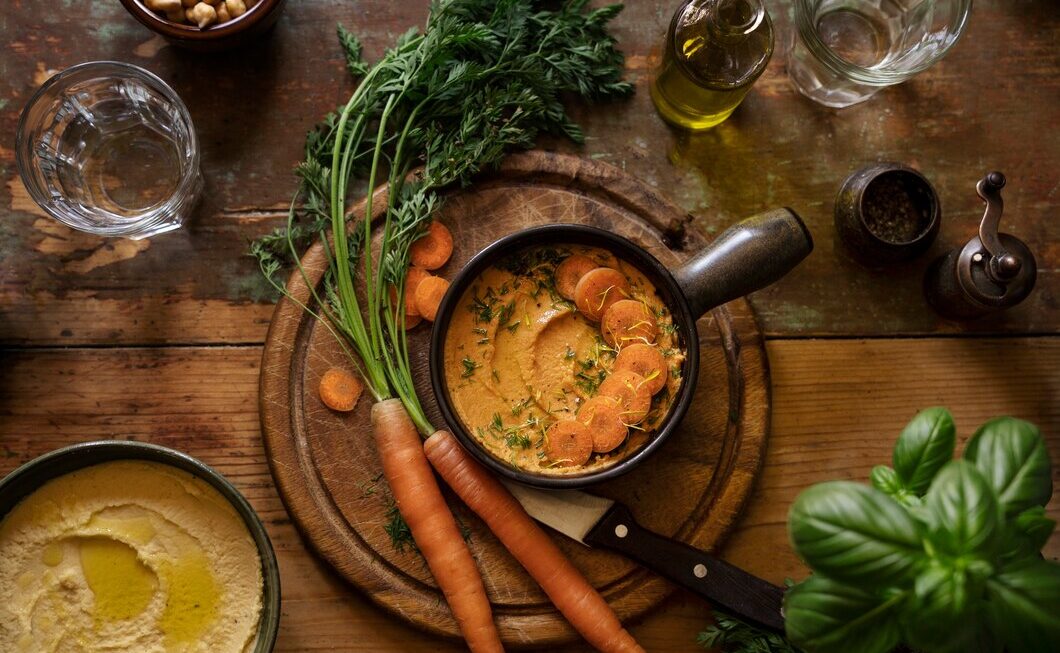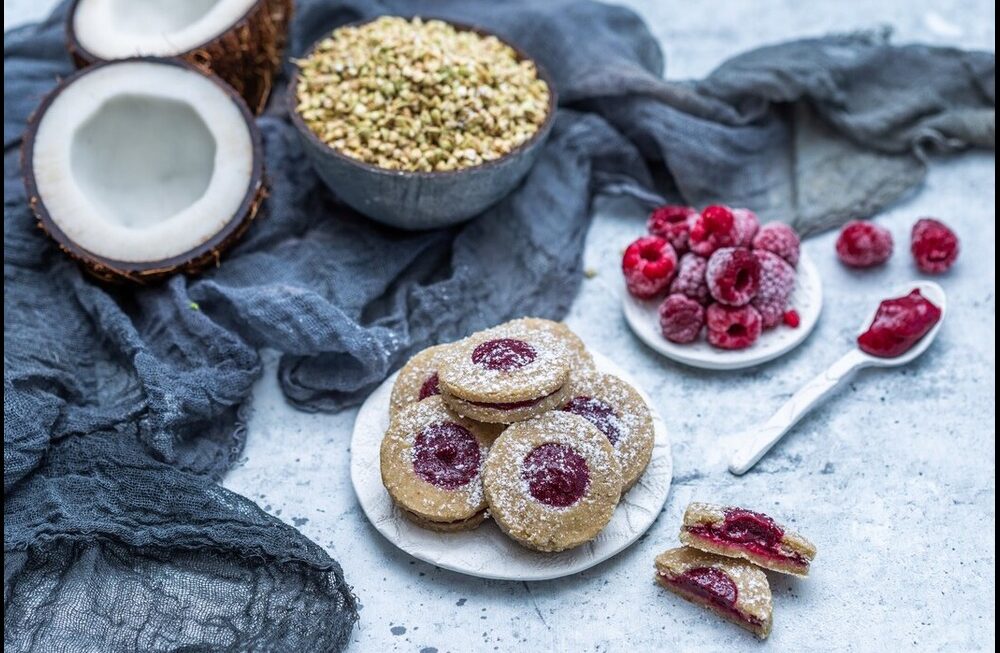Dessert represents celebration, pleasure, and often, pure indulgence. For many, “decadence” in the dessert world is synonymous with rich butter, heavy cream, and eggs. But does plant-based eating mean sacrificing this luxurious experience? Absolutely not! The world of decadent vegan desserts is vibrant, innovative, and utterly delicious, proving that you can enjoy truly indulgent treats without relying on animal products. This guide explores how to create luscious vegan desserts, moving beyond the idea of “guilt” – whether related to calories or ethics – by examining nutritional choices, ethical considerations, ingredient science, sustainable sourcing, and practical recipes that promise pure, plant-powered pleasure, adaptable for kitchens everywhere, including here in Siyol.
LENS 1: Nutritional Analysis (Mindful Indulgence)
While “decadent” often implies richness over optimal nutrition, vegan desserts can offer nuances that allow for more mindful indulgence.
- The Nature of Richness: Decadence often comes from fat and sugar. Vegan desserts achieve richness using plant-based fats:
- Nuts & Seeds: Cashews, almonds, walnuts, macadamias provide creaminess and structure (especially in raw/no-bake desserts) along with healthy fats, fiber, and minerals.
- Coconut Cream/Oil: Deliver significant richness and a creamy mouthfeel, comparable to dairy cream, but are high in saturated fat. Best used where flavour complements and in moderation if health is a primary concern.
- Avocado: Creates incredibly smooth, creamy mousses and puddings, adding healthy monounsaturated fats.
- Quality Dark Chocolate: Provides antioxidants (flavonoids) alongside rich flavour. Choose higher cacao percentages (70%+) for more benefits and less sugar.
- Sweeteners – A Conscious Choice: While sugar is key to most desserts, vegan options allow choices:
- Refined Sugar (ensure bone-char free): Provides clean sweetness.
- Maple Syrup, Agave, Date Syrup, Jaggery (Gur): Offer distinct flavours and trace minerals, though still contribute sugar. Dates also add fiber and binding properties.
- Potential Nutritional Perks: Compared to traditional dairy/egg desserts, vegan versions contain no dietary cholesterol and can be higher in fiber (from nuts, seeds, fruits, oats) and certain micronutrients or antioxidants, depending on ingredients.
- Mindful Enjoyment: Decadence is about quality, not just quantity. Savoring smaller portions of truly rich vegan desserts can be highly satisfying. Focus on whole-food ingredients where possible (e.g., nut/oat crusts, fruit fillings) to maximize nutrient density even in a treat. When indulging in a vegan dessert, how can you make choices that feel both satisfying and relatively nourishing?
Nutritional Deep Dive: Healthy Fats in Vegan Desserts
Not all fats are created equal, even in desserts.
- Avocado: Rich in monounsaturated fats (heart-healthy), potassium, and fiber. Creates smooth mousses/puddings with a neutral flavour when combined with cocoa or strong flavours.
- Cashews: Provide monounsaturated fats, magnesium, and create unparalleled creaminess when soaked and blended, forming the base for many vegan cheesecakes and creams.
- Coconut Cream/Oil: High in saturated fats (primarily medium-chain triglycerides, debated health effects). Excellent for mimicking dairy cream’s richness and setting properties but use mindfully if limiting saturated fat.
- Nut/Seed Butters: Add healthy fats, protein, and flavour. Great in cookies, bars, and fillings.
Voice of Experience (Vegan Nutritionist & Baker): “Decadent vegan desserts prove that indulgence doesn’t require dairy or eggs. By using smart swaps like cashew cream, avocado, or quality dark chocolate, we can create incredible richness. While still treats, focusing on whole-food elements like nuts and fruits allows for a more nutrient-aware approach to pleasure. Enjoy mindfully!” – Dr. Neha Patel, PhD, RDN
LENS 2: Ethical Framework (Compassionate Pleasure)
Choosing decadent vegan desserts aligns the pleasure of indulgence with ethical principles of compassion.
- Cruelty-Free Indulgence: The primary ethical driver is enjoying luxurious tastes and textures without contributing to animal exploitation inherent in the dairy, egg, and sometimes honey or gelatin industries. Every bite can be savoured with a clear conscience.
- “Guilt-Free” Reimagined: The term “guilt-free” often refers to calories or health, but in a vegan context, it gains a deeper meaning – freedom from the ethical guilt associated with consuming animal products.
- Ethical Sourcing in Luxury: Decadent desserts often use special ingredients. Choosing Fair Trade certified cocoa/chocolate, sugar, vanilla, coffee, and ethically sourced nuts (considering labour practices for cashews, for instance) extends compassion throughout the supply chain.
- Celebration & Connection: Baking and sharing elaborate, beautiful vegan desserts for birthdays, holidays (like Diwali or Christmas), weddings, or simply as a gesture of care is a powerful way to celebrate life’s moments compassionately and demonstrate that ethical choices don’t mean deprivation.
- Challenging Austerity: Veganism is sometimes perceived as restrictive. Decadent vegan desserts directly challenge this, showcasing abundance, pleasure, and artistry within an ethical framework. How does the ethical aspect change your perception or enjoyment of an indulgent dessert?
Hidden Benefits: Enhanced Appreciation
Knowing the care and conscious choices (both ethical and culinary) that go into creating a truly decadent vegan dessert can lead to a deeper appreciation and more mindful savouring of the experience, enhancing the pleasure derived.
Voice of Experience (Vegan Wedding Cake Baker): “Creating stunning, decadent vegan cakes is about showing that compassion and luxury absolutely go hand-in-hand. Couples choose vegan for ethical reasons, but they still want that show-stopping, delicious centerpiece. Knowing no animals were harmed makes the celebration even sweeter.” – Aisha Khan, “Kind Cravings” Bakery
Critical Reassessment: Avoiding Elitism & Promoting Accessibility
While celebrating high-end vegan desserts, it’s important to ensure the movement remains accessible. Emphasize that simple, decadent treats can be made with basic ingredients. Avoid creating an impression that ethical indulgence is only for the privileged who can afford expensive specialty items or complex techniques.
LENS 3: Ingredient Science & Environment (Sustainable Sweets)
Creating vegan decadence relies on understanding how plant-based ingredients mimic the functions of traditional ones, often with environmental benefits.
- Creating Creaminess & Richness:
- Emulsification: High-speed blending of soaked cashews or other nuts/seeds with water creates stable emulsions, mimicking dairy cream. Coconut cream’s high fat content provides natural richness.
- Thickening: Starches (cornstarch, tapioca, arrowroot) thicken puddings and fillings when heated. Avocado provides natural thickness when blended.
- Structure & Binding Without Eggs:
- Aquafaba: Whipped liquid from canned chickpeas traps air via proteins, creating light mousses and meringues.
- Starches & Gums: Help bind batters and fillings.
- Agar-Agar: A seaweed derivative that sets liquids firmly when heated and cooled, replacing gelatin (animal-derived) for jellies, panna cotta, and cheesecake toppings. Requires precise usage.
- Deep Flavours: High-quality cocoa powder or melted dark chocolate provides intense flavour. Caramelizing plant-based sugars creates depth. Toasted nuts add complexity.
- Environmental Considerations:
- Nuts: Cashews and almonds, common in vegan desserts, are water-intensive crops. Considering alternatives like sunflower seeds (for creams) or locally available nuts can sometimes be more sustainable.
- Chocolate: Look for sustainable certifications (Fair Trade, Rainforest Alliance) or bean-to-bar brands with transparent, ethical sourcing to combat deforestation and unfair labour.
- Fats: Coconut oil production has sustainability concerns (monoculture, land use). Exploring alternatives or choosing certified sources is ideal.
- Seasonal Fruit: Using local, seasonal fruits drastically reduces the carbon footprint associated with transport. Enjoying mango desserts in summer (like a vegan mango kheer or lassi) or apple/pear crumbles in cooler seasons aligns with nature’s rhythm. Rajasthani dates (khajoor) make excellent natural sweeteners and binders. Could you choose a more sustainable fat or fruit option for your next decadent dessert creation?
Market Transformation Map Suggestion: Data showing the growth in market share for Fair Trade certified chocolate and the increasing availability of agar-agar and various commercial vegan whipping creams.
Voice of Experience (Food Scientist & Recipe Developer): “The magic of decadent vegan desserts lies in leveraging plant properties. We use the emulsifying power of lecithin in soy or sunflower seeds, the gelling strength of agar-agar, the fat structures in coconut cream, and the protein network in aquafaba to recreate textures science previously attributed only to animal products, often more sustainably.” – Dr. Kenji Tanaka, Plant-Based Food Innovation
LENS 4: Everyday Practitioner’s Experience (Recipes & Techniques)
This is where indulgence takes shape – practical recipes and the techniques to master them.
Decadent Vegan Dessert Recipes:
(Measurements are approximate – follow specific linked/cited recipes for best results)
- Rich Chocolate Avocado Mousse:
- Blend ripe avocados until completely smooth. Add cocoa powder, sweetener (maple syrup/dates), plant milk, vanilla extract, pinch of salt. Blend again until silky. Chill thoroughly. (Naturally creamy, uses healthy fats).
- Classic No-Bake Vegan Cheesecake:
- Crust: Process dates and nuts (almonds/walnuts) or oats/vegan biscuits until sticky. Press into pan.
- Filling: Blend soaked raw cashews until very smooth with lemon juice (for tang), sweetener (maple/agave), melted coconut oil (helps set), vanilla, and a little plant milk. Pour over crust. Chill until firm (several hours or overnight).
- Silky Chocolate Ganache:
- Heat full-fat coconut milk (or other vegan cream) until just simmering. Pour over chopped high-quality dark vegan chocolate. Let sit for 5 minutes, then whisk gently until smooth and glossy. Use as a tart filling, frosting, or truffle base.
- Creamy Coconut Milk Ice Cream:
- Whisk full-fat canned coconut milk with sweetener, vanilla, and any flavourings (cocoa, fruit puree). Chill mixture thoroughly. Churn in an ice cream maker according to manufacturer’s instructions. (No-churn versions exist but may be icier).
- Vegan Caramel Sauce:
- Gently heat coconut cream with brown sugar or coconut sugar and a pinch of salt, stirring until sugar dissolves. Simmer carefully until thickened. Add vanilla off heat. (Can be tricky – don’t burn sugar!).
- Vegan Kheer/Phirni (Indian Rice Pudding Adaptation):
- Cook rice (basmati or specific kheer rice) in plant milk (cashew or almond work well) until very soft and creamy. Add sugar/jaggery, ground cardamom (elaichi), saffron (kesar), and chopped nuts (pistachios, almonds). Simmer until thickened. Serve warm or chilled.
Key Techniques:
- Soaking Cashews: Essential for smooth cheesecake/cream. Soak raw cashews in water for at least 4 hours, or quick-soak in boiling water for 15-30 mins. Drain well before blending.
- Whipping Coconut Cream: Chill a can of full-fat coconut milk overnight without shaking. Scoop out only the thick, solidified cream from the top, leaving the water behind. Whip with powdered sugar and vanilla until fluffy (it won’t get as stiff as dairy cream). Keep cold.
- Using Agar-Agar: Whisk agar powder into cold liquid, bring to a boil while whisking, simmer for a minute or two, then cool to set. Ratios are crucial – follow recipe instructions carefully.
- Achieving Flavour Depth: Use quality vanilla extract, espresso powder to enhance chocolate, citrus zest, salt to balance sweetness, and toast nuts for deeper flavour.
What decadent vegan dessert have you been hesitant to try making, and what technique might help you succeed?
Daily Impact: Vegan Dessert Pantry Essentials
- Raw Cashews, Other Nuts (Almonds, Walnuts)
- Seeds (Chia, Flax – for occasional binding)
- Dates (Medjool best for texture)
- Quality Cocoa Powder & Dark Chocolate (vegan certified)
- Coconut Milk (Full-fat, canned), Coconut Oil
- Plant Milk (for thinning creams/batters)
- Sweeteners (Maple Syrup, Sugar/Jaggery, Powdered Sugar for frosting)
- Vanilla Extract, Other Extracts/Spices
- Agar-Agar powder (if making jellies/panna cotta)
- Cornstarch/Arrowroot Powder (for thickening)
Voice of Experience (Passionate Home Baker): “My mind was blown when I first made a vegan cheesecake with cashews! It was so creamy and rich, nobody could tell it was vegan. The key is a good blender and properly soaked cashews. Now I love experimenting with decadent vegan treats – it feels creative and kind.” – Meena Kumari, Teacher
Alternative Approaches: Raw & Simple Decadence
- Raw Vegan Desserts: Often rely on nuts, dates, coconut oil, cacao powder, and fruit. Typically no-bake and focus on whole ingredients, but can be very calorie/fat-dense.
- Fruit-Focused: Elevate simple fruit with a drizzle of vegan chocolate, a dollop of whipped coconut cream, a sprinkle of toasted nuts, or by roasting/grilling to intensify sweetness (like roasted pineapple with coconut yogurt).
PERSPECTIVE INTERSECTION MATRIX
- Science & Practice (Lens 3 & 4): Understanding emulsification and gelling properties (Lens 3) is crucial for successfully executing recipes for creamy mousses or set cheesecakes (Lens 4).
- Nutrition & Ethics (Lens 1 & 2): Choosing healthier fats or less refined sugars (Lens 1) can align with a mindful, ethical approach to indulgence (Lens 2), moving beyond just animal product avoidance.
- Environment & Ingredients (Lens 3 & 4): Awareness of the environmental impact of ingredients like nuts or chocolate (Lens 3) encourages practitioners (Lens 4) to seek sustainable sources or seasonal alternatives.
- Practice & Perception (Lens 4 & 2): Successfully creating delicious, decadent vegan desserts (Lens 4) directly challenges negative stereotypes and supports the ethical argument that compassionate choices don’t require sacrifice (Lens 2).
- All Lenses & “Guilt-Free”: The concept is addressed nutritionally (mindful choices), ethically (compassion), environmentally (sustainability), and practically (achievable, delicious results), offering a multi-layered understanding of guilt-free indulgence.
MISCONCEPTION ANALYSIS
| Misconception | Reality |
| Vegan desserts can’t achieve true richness or decadent mouthfeel without dairy. | Plant-based fats like coconut cream, cashew cream, avocado, and quality vegan butters create incredibly rich, creamy, and satisfying textures that mimic or even surpass traditional versions when used skillfully. |
| Vegan desserts always taste “healthy” or strongly of coconut/banana. | Flavour depends entirely on the ingredients used! Neutral bases like cashew cream allow classic flavours (chocolate, vanilla, caramel, lemon) to shine. Coconut flavour is only present if coconut products are prominent ingredients. |
| Making impressive vegan desserts requires professional skills or equipment. | While some techniques require practice (aquafaba meringue), many incredibly decadent vegan desserts are surprisingly simple, like no-bake cheesecakes, avocado mousse, or simple ganaches. A decent blender is often the key tool. |
| You need eggs for binding and structure in cakes and custards. | Flax eggs, chia eggs, starches, fruit purees, silken tofu, and commercial replacers provide excellent binding. Agar-agar and starches effectively set custards and creams. |
| Vegan indulgence is just as “unhealthy” as regular indulgence. | While still treats to be enjoyed moderately, vegan desserts lack dietary cholesterol and can incorporate more fiber, healthy fats, and micronutrients from nuts, seeds, and fruits compared to some traditional counterparts. |
KEY TURNING POINTS
- Mainstreaming of Cashew Cream: Wide adoption of soaked, blended cashews as a versatile base for creams, sauces, and cheesecakes.
- Aquafaba Discovery & Popularization (c. 2014-2015): Unlocked the possibility of light, airy vegan meringues, mousses, and macarons.
- Improvement in Vegan Chocolate Quality & Availability: More brands offering high-quality dark chocolate free from dairy, suitable for fine dessert making.
- Rise of Raw Vegan Dessert Movement: Popularized techniques using nuts, dates, coconut oil, and cacao for no-bake, often intricate desserts.
- Influence of Vegan Bakeries & Social Media: Showcased the beauty, creativity, and desirability of high-end vegan desserts, inspiring home bakers and challenging perceptions.
SYNTHESIS & RECOMMENDATIONS
The world of decadent vegan desserts is a testament to culinary creativity and compassionate living. Richness, creaminess, and pure indulgence are entirely achievable using the diverse palette of plant-based ingredients. By understanding the science behind substitutes, making mindful nutritional and ethical choices, embracing sustainable sourcing, and mastering key techniques, anyone can create show-stopping desserts that delight the senses without relying on animal products. The “guilt” often associated with indulgence fades away, replaced by the joy of compassionate pleasure and delicious discovery.
Recommendations:
- Master Creaminess: Learn to make smooth cashew cream or properly whip coconut cream – these are game-changers.
- Invest in Quality Chocolate: Use good quality vegan dark chocolate (check ingredients) for the best flavour in ganaches, mousses, and cakes.
- Embrace Healthy Fats: Utilize avocado, nuts, and seeds for richness and nutritional benefits.
- Understand Your Sweeteners: Choose sweeteners based on flavour profile, moisture content, and nutritional considerations. Dates add sweetness and binding.
- Explore Setting Agents: Get comfortable with agar-agar for jellies/cheesecakes or cornstarch for puddings.
- Follow Reliable Recipes: Especially for complex desserts, start with well-tested recipes from trusted sources.
- Chill Thoroughly: Many vegan desserts (cheesecakes, mousses) rely on chilling to set properly. Be patient!
- Presentation Matters: Elevate your decadent creations with thoughtful presentation – a dusting of cocoa, fresh berries, chopped nuts, or a chocolate drizzle.
FURTHER AREAS OF EXPLORATION
- The Ultimate Guide to Vegan Cheesecake (Baked vs. No-Bake)
- Vegan Chocolate Making & Tempering at Home
- Aquafaba Masterclass: Meringues, Macarons, Mousses
- Creating Vegan Versions of Traditional Indian Desserts (Gulab Jamun, Jalebi, Barfi)
- Advanced Vegan Pastry: Lamination, Choux, Entremets
- Naturally Sweetened Vegan Desserts Using Only Fruit & Dates
- Guide to Vegan Ice Cream Bases (Coconut, Cashew, Avocado)
